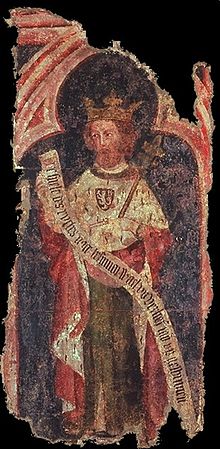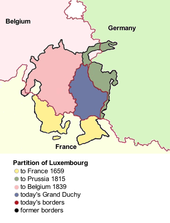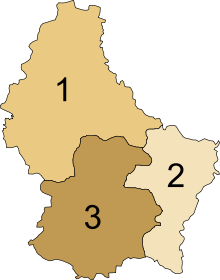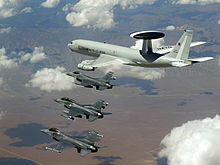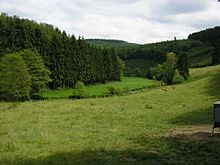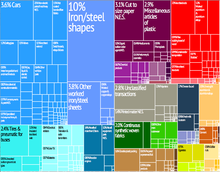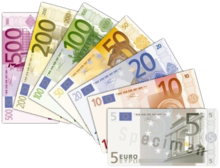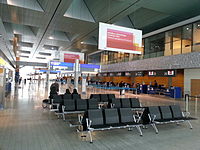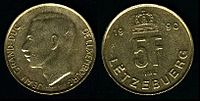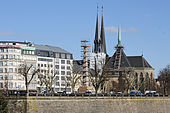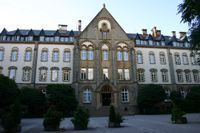
Luxembourg
Background Information
SOS Children has tried to make Wikipedia content more accessible by this schools selection. To compare sponsorship charities this is the best sponsorship link.
| Grand Duchy of Luxembourg | ||||||
|---|---|---|---|---|---|---|
|
||||||
| Motto: " Mir wëlle bleiwe wat mir sinn" ( Luxembourgish) "We want to remain what we are" |
||||||
| Anthem: Ons Heemecht Our Homeland MP3 version (instrumental) Royal anthem: De Wilhelmus a |
||||||
|
Location of Luxembourg (dark green)
– in Europe (green & dark grey) |
||||||
| Capital and largest city |
Luxembourg 49°36′N 6°7′E |
|||||
| Official languages | ||||||
| Demonym | Luxembourger | |||||
| Government | Unitary parliamentary constitutional monarchy | |||||
| - | Grand Duke ( list) | Henri | ||||
| - | Prime Minister ( list) | Jean-Claude Juncker | ||||
| Legislature | Chamber of Deputies | |||||
| Independence | ||||||
| - | from French Empire ( Treaty of Paris) |
9 June 1815 | ||||
| - | 1st Treaty of London | 19 April 1839 | ||||
| - | 2nd Treaty of London | 11 May 1867 | ||||
| - | End of personal union | 23 November 1890 | ||||
| Area | ||||||
| - | Total | 2,586.4 km2 ( 179th) 998.6 sq mi |
||||
| - | Water (%) | 0.60% | ||||
| Population | ||||||
| - | 2013 estimate | 537,853 ( 173rd) | ||||
| - | 2001 census | 439,539 | ||||
| - | Density | 194.1/km2 ( 67th) 501.3/sq mi |
||||
| GDP ( PPP) | 2012 estimate | |||||
| - | Total | $42.225 billion ( 94th) | ||||
| - | Per capita | $79,785 ( 1st) | ||||
| GDP (nominal) | 2012 estimate | |||||
| - | Total | $56.738 billion ( 69th) | ||||
| - | Per capita | $107,206 ( 1st) | ||||
| Gini (2005) | 26.0 low · 6th |
|||||
| HDI (2013) | very high · 26th |
|||||
| Currency | Euro ( €)b ( EUR) |
|||||
| Time zone | CET ( UTC+1) | |||||
| - | Summer ( DST) | CEST ( UTC+2) | ||||
| Drives on the | right | |||||
| Calling code | +352 | |||||
| ISO 3166 code | LU | |||||
| Internet TLD | .luc | |||||
| a. | Not the same as the Het Wilhelmus of the Netherlands. | |||||
| b. | Before 1999, Luxembourgish franc. | |||||
| c. | The .eu domain is also used, as it is shared with other European Union member states. | |||||
| d. | ^ "CIA – The World Factbook – Field Listing – Distribution of family income – Gini index". United States government. Retrieved 3 May 2013. | |||||
Luxembourg ( / ˈ l ʌ k s əm b ɜr ɡ / LUKS-əm-burg), officially the Grand Duchy of Luxembourg ( Luxembourgish: Groussherzogtum Lëtzebuerg, French: Grand-Duché de Luxembourg, German: Großherzogtum Luxemburg), is a landlocked country in western Europe, bordered by Belgium, France, and Germany. It has two principal regions: the Oesling in the north as part of the Ardennes massif, and the Gutland ("good country") in the south. Luxembourg has a population of 524,853 (as of October 2012) in an area of 2,586 square kilometres (998 sq mi).
As a representative democracy with a constitutional monarch, it is headed by a grand duke and is the world's only remaining grand duchy. Luxembourg is a developed country, with an advanced economy and the world's highest GDP (PPP) per capita, according to the World Bank. Its historic and strategic importance dates back to its founding as a Roman era fortress and Frankish count's castle site in the Early Middle Ages. It was an important bastion along the Spanish Road when Spain was the principal European power influencing the whole western hemisphere and beyond in the 16th–17th centuries.
Luxembourg is a member of the European Union, NATO, OECD, the United Nations, and Benelux, reflecting the political consensus in favour of economic, political, and military integration. The city of Luxembourg, the largest and capital city, is the seat of several institutions and agencies of the EU. On 18 October 2012, Luxembourg was elected to a temporary seat on the United Nations Security Council, for the first time in its history. The country will serve on the Security Council from 1 January 2013 until 31 December 2014, and will be, at least until the end of 2013, the only EU non-permanent member.
Reflecting its geographic position, Luxembourg's culture is a fusion of Romance and Germanic Europe, borrowing customs from each of the distinct traditions. Luxembourg is a trilingual country: Luxembourgish, French and German are official languages. Although a secular state, Luxembourg is predominantly Roman Catholic.
History
The recorded history of Luxembourg begins with the acquisition of Lucilinburhuc (today Luxembourg Castle) situated on the Bock rock by Siegfried, Count of Ardennes, in 963 through an exchange act with the abbey of St Maximin in Trier. Around this fort, a town gradually developed, which became the centre of a state of great strategic value. In the 14th and early 15th centuries, three members of the House of Luxembourg reigned as Holy Roman Emperors. In 1437, the House of Luxembourg suffered a succession crisis, precipitated by the lack of a male heir to assume the throne, which led to the territory's being sold by Duchess Elisabeth to Philip the Good of Burgundy.
In the following centuries, Luxembourg's fortress was steadily enlarged and strengthened by its successive occupants, the Bourbons, Habsburgs, Hohenzollerns and the French. After the defeat of Napoleon in 1815, Luxembourg was disputed between Prussia and the Netherlands. The Congress of Vienna formed Luxembourg as a Grand Duchy within the German Confederation in personal union with the Netherlands, while at the same time ruled as a province of the Netherlands, with a Confederate fortress manned by Prussian troops. This situation was revised by the 1839 First Treaty of London, from which date Luxembourg's full independence is reckoned.
The Belgian Revolution of 1830–1839 reduced Luxembourg's territory by more than half, as the predominantly francophone western part of the country was transferred to Belgium. Luxembourg's full independence was established by the 1839 First Treaty of London. In the same year, Luxembourg joined the Zollverein. Luxembourg's independence and neutrality were again affirmed by the 1867 Second Treaty of London, after the Luxembourg Crisis nearly led to war between Prussia and France. After the latter conflict, the Confederate fortress was dismantled.
The King of the Netherlands remained Head of State as Grand Duke of Luxembourg, maintaining personal union between the two countries until 1890. At the death of William III, the Dutch throne passed to his daughter Wilhelmina, while Luxembourg (at that time restricted to male heirs by the Nassau Family Pact) passed to Adolph of Nassau-Weilburg.
During World War I, Luxembourg was invaded and occupied by Germany, but was allowed to maintain its independence and political mechanisms.
During World War II, Luxembourg was unable to maintain its policy of neutrality when in 1940 Nazi Germany invaded and occupied the country, due to its strategic location on the invasion route into France. In contrast to the First World War experience, Luxembourg was treated as a Germanic territory and informally annexed to an adjacent province of the Third Reich in 1940. A government in exile based in London fought alongside the Allies, sending a small group of volunteers who participated in the Normandy invasion. Luxembourg was liberated in September 1944. It became a founding member of the United Nations in 1945, and of NATO in 1949.
In 1957, Luxembourg became one of the six founding countries of the European Economic Community (later the European Union), and, in 1999, it joined the euro currency area. In 2005, a referendum on the EU treaty establishing a constitution for Europe was held in Luxembourg.
Politics
Luxembourg is a parliamentary democracy headed by a constitutional monarch. Under the constitution of 1868, executive power is exercised by the Grand Duke and the cabinet, which consists of several other ministers. The Grand Duke has the power to dissolve the legislature, in which case new elections must be held within three months. However, since 1919, sovereignty has resided with the Nation, exercised by the Grand Duke in accordance with the Constitution and the law.
Legislative power is vested in the Chamber of Deputies, a unicameral legislature of sixty members, who are directly elected to five-year terms from four constituencies. A second body, the Council of State (Conseil d'État), composed of twenty-one ordinary citizens appointed by the Grand Duke, advises the Chamber of Deputies in the drafting of legislation.
The Grand Duchy has three lower tribunals (justices de paix; in Esch-sur-Alzette, the city of Luxembourg, and Diekirch), two district tribunals (Luxembourg and Diekirch) and a Superior Court of Justice (Luxembourg), which includes the Court of Appeal and the Court of Cassation. There is also an Administrative Tribunal and an Administrative Court, as well as a Constitutional Court, all of which are located in the capital.
Administrative divisions
Luxembourg is divided into 3 districts, which are further divided into 12 cantons and then 106 communes. Twelve of the communes have city status, of which the city of Luxembourg is the largest.
The districts are Diekirch, Grevenmacher, and Luxembourg.
Foreign relations
Luxembourg has long been a prominent supporter of European political and economic integration. In efforts foreshadowing European integration, Luxembourg and Belgium in 1921 formed the Belgium-Luxembourg Economic Union (BLEU) to create an inter-exchangeable currency and a common customs regime. Luxembourg is a member of the Benelux Economic Union and was one of the founding members of the European Economic Community (now the European Union). It also participates in the Schengen Group (named after the Luxembourg village of Schengen where the agreements were signed), whose goal is the free movement of citizens among member states. At the same time, the majority of Luxembourgers have consistently believed that European unity makes sense only in the context of a dynamic transatlantic relationship, and thus have traditionally pursued a pro-NATO, pro-US foreign policy.
Luxembourg is the site of the European Court of Justice, the European Court of Auditors, the Statistical Office of the European Communities (" Eurostat") and other vital EU organs. The Secretariat of the European Parliament is located in Luxembourg, but the Parliament usually meets in nearby Strasbourg.
Military
The contribution Luxembourg makes to its defense and to NATO consists of a small army (currently consisting of around 900 people). As a landlocked country, it has no navy.
Luxembourg also lacks an air force, though the seventeen NATO AWACS aeroplanes are for convenience registered as aircraft of Luxembourg. In accordance with a joint agreement with Belgium, both countries have put forth funding for one A400M military cargo plane.
Geography
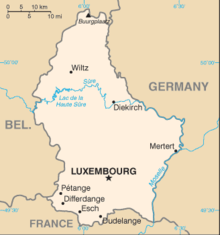
Luxembourg is one of the smallest countries in Europe, and ranked 179th in size of all the 194 independent countries of the world; the country is about 2,586 square kilometres (998 sq mi) in size, and measures 82 km (51 mi) long and 57 km (35 mi) wide. It lies between latitudes 49° and 51° N, and longitudes 5° and 7° E.
To the east, Luxembourg borders the German Bundesländer of Rhineland-Palatinate and Saarland, and, to the south, it borders the French région of Lorraine. The Grand Duchy borders the Belgian Walloon Region, in particular the latter's provinces of Luxembourg and Liège, part of which comprises the German-speaking Community of Belgium, to the west and to the north respectively.
The northern third of the country is known as the ' Oesling', and forms part of the Ardennes. It is dominated by hills and low mountains, including the Kneiff near Wilwerdange, which is the highest point, at 560 metres (1,837 ft). Other mountains are the 'Buurgplaaz' at 559 metres near Huldange and the 'Napoléonsgaard' at 554 metres near Rambrouch. The region is sparsely populated, with only one town ( Wiltz) with a population of more than four thousand people.
The southern two-thirds of the country is called the " Gutland", and is more densely populated than the Oesling. It is also more diverse, and can be divided into five geographic sub-regions. The Luxembourg plateau, in south-central Luxembourg, is a large, flat, sandstone formation, and the site of the city of Luxembourg. Little Switzerland, in the east of Luxembourg, has craggy terrain and thick forests. The Moselle valley is the lowest-lying region, running along the southeastern border. The Red Lands, in the far south and southwest, are Luxembourg's industrial heartland and home to many of Luxembourg's largest towns.
The border between Luxembourg and Germany is formed by three rivers: the Moselle, the Sauer, and the Our. Other major rivers are the Alzette, the Attert, the Clerve, and the Wiltz. The valleys of the mid-Sauer and Attert form the border between the Gutland and the Oesling.
According to the 2012 Environmental Performance Index, Luxembourg is one of the world's best performers in environmental protection, ranking 4th out of 132 assessed countries
Climate
Luxembourg has an oceanic climate ( Köppen: Cfb), marked by high precipitation, particularly in late summer.
Economy
Luxembourg's stable and high-income market economy features moderate growth, low inflation, and a high level of innovation. Unemployment is traditionally low, although it had risen to 6.1% as of May 2012, due largely to the effect of the 2008 global financial crisis. Consequently, Luxembourg's economy is forecast to have negligible growth in 2012. As of 2011, according to the IMF, Luxembourg was the second richest country in the world, with a per capita GDP on a purchasing-power parity (PPP) basis of $80,119. Luxembourg is ranked 13th in the Heritage Foundation's Index of Economic Freedom, 24th in the United Nations Human Development Index, and 4th in the Economist Intelligence Unit's quality of life index.
The industrial sector, which was dominated by steel until the 1960s, has since diversified to include chemicals, rubber, and other products. During the past decades, growth in the financial sector has more than compensated for the decline in steel production. Services, especially banking and finance, account for the majority of economic output. Luxembourg is the world's second largest investment fund centre (after the United States), the most important private banking centre in the eurozone and Europe's leading centre for reinsurance companies. Moreover, the Luxembourg government has aimed to attract internet start-ups, with Skype and Amazon being two of the many internet companies that have shifted their regional headquarters to Luxembourg.
In April 2009, concern about Luxembourg's banking secrecy laws, as well as its reputation as a tax haven, led to its being added to a "grey list" of nations with questionable banking arrangements by the G20. In response, the country soon after adopted OECD standards on exchange of information and was subsequently added into the category of 'jurisdictions that have substantially implemented the internationally agreed tax standard.' In March 2010, the Sunday Telegraph reported that most of Kim Jong-Il's $4bn in secret accounts is in Luxembourg banks. Amazon.co.uk also benefits from Luxembourg tax loop holes by channeling substantial UK revenues as reported by The Guardian in April 2012
Agriculture is based on small, family-owned farms.
Luxembourg has especially close trade and financial ties to Belgium and the Netherlands (see Benelux), and as a member of the EU it enjoys the advantages of the open European market.
With $138 billion (February 2012), the country ranks tenth in the world in holdings of U.S. Treasury securities. The ranking is however imperfect as some foreign owners entrust the safekeeping of their securities to institutions that are neither in the United States nor in the owner's country of residence.
Transport
Luxembourg has efficient road, rail and air transport facilities and services. The road network has been significantly modernised in recent years with 147 km of motorways connecting the capital to adjacent countries. The advent of the high-speed TGV link to Paris has led to renovation of the city's railway station while a new passenger terminal at Luxembourg Airport has opened some years ago. There are plans to introduce trams in the capital and light-rail lines in adjacent areas within the next few years.
The number of cars per 1000 persons amount to 680.1 in Luxembourg — only British overseas territory Gibraltar and the Principality of Monaco scoring higher.
Communications
The telecommunications industry in Luxembourg is liberalised and the electronic communications networks are significantly developed. Competition between the different operators is guaranteed by the legislative framework Paquet Telecom of the Government of 2011 which transposes the European Telecom Directives into Luxembourgean law. This encourages the investment in networks and services. The regulator ILR – Institut Luxembourgeois de Régulation ensures the compliance to these legal rules
Luxembourg has modern and widely deployed optical fibre and cable networks throughout the country. In 2010, the Luxembourg Government launched its National strategy for very high-speed networks with the aim to become a global leader in terms of very high-speed broadband by achieving full 1 Gbit/s coverage of the country by 2020. In 2011, Luxembourg had an NGA coverage of 75%. In April 2013, Luxembourg featured the 6th highest download speed worldwide and the 2nd highest in Europe: 32,46 Mbit/s. The country's location in Central Europe, stable economy and low taxes favour the telecommunication industry.
It ranks 2nd in the world in the development of the Information and Communication Technologies in the ITU ICT Development Index and 8th in the Global Broadband Quality Study 2009 by the University of Oxford and the University of Oviedo.
Luxembourg is connected to all major European Internet Exchanges ( AMS-IX Amsterdam, DE-CIX Frankfurt, LINX London), datacenters and POPs through redundant optical networks. In addition, the country is connected to the virtual meetme room services (vmmr) of the international data hub operator Ancotel. This enables Luxembourg to interconnect with all major telecommunication operators and data carriers worldwide. The interconnection points are in Frankfurt, London, New York and Hong Kong.
Several providers interconnect Luxembourg to the major European data hubs:
- Teralink ( P&TLuxembourg, also called EPT Luxembourg: incumbent operator)
- LuxConnect (shareholder : Government) LuxConnect tested the 100G coherent transmission of data signals between Luxembourg and Amsterdam in June 2011.
- Artelis/Cegecom (alternative telecommunications provider in Luxembourg and Saarland)
- Satellite connectivity – Teleports ( SES), Broadcasting Centre Europe and P&T Luxembourg Teleport.
Luxembourg is connected through an optical DWDM network, called Teralink to several Tier 1 upstream providers like Level3 and Global Crossing. Teralink offers connectivities up to 100 Gbit/s. P&TLuxembourg established a coherent 100Gbit/s IP connection between Frankfurt and Luxembourg with live traffic in 2011 .
The Internet IPV6 protocol has been introduced to the country by Restena and P&T Luxembourg.
Luxembourg has one Internet exchange point and one Carrier Ethernet Exchange point.
- LU-CIX is Luxembourg's neutral and commercial Internet Exchange Point which was founded in 2009 by Cegecom, Datacentre Luxembourg, Global Media Systems, INEXIO, LuxConnect, P&T Luxemboug and Root eSolutions. It offers a short, fast and efficient route to the major European Internet networks. In 2012, LIX, the neutral Internet exchange operated by the RESTENA Foundation, merged with LU-CIX. In March 2013, LU-CIX launched the 'Central European Peering Hub' in order to provide the opportunity to its members to connect to other IXs’ reseller programs, AMS-IX (Amsterdam), LINX (London), DE-CIX (Frankfurt) and France-IX (Paris), etc.
- LEX is the Luxembourg Ethernet Exchange located in the Tier IV certified ebrc datacentre
The online portal De Guichet of the Grand Duchy of Luxembourg is a single one-stop online shop for citizens and companies to undertake various administrative operations (procedures, online forms, downloadable forms and advice) by Internet.
PSA Peugeot Citroën, with P&T Luxembourg as its partner, has introduced an integrated mobile telecommunication solution for the development of its telematic services in Europe.
Datacentres
Some 20 data centres are operating in Luxembourg. Three data centers are Tier IV classified & certified: two of ebrc and one of European Data Hub. In a survey on 9 international data centers carried out in December 2012 and January 2013 and measuring availability (up-time) and performance (delay by which the data from the requested website was received), the top 3 positions were held by Luxembourg data centers.
Demographics
Ethnicity
The people of Luxembourg are called Luxembourgers. The immigrant population increased in the 20th century due to the arrival of immigrants from Belgium, France, Italy, Germany, and Portugal, with the majority coming from the latter: in the 2001 census, there were 58,657 inhabitants with Portuguese nationality.
Since the beginning of the Yugoslav wars, Luxembourg has seen many immigrants from Bosnia and Herzegovina, Montenegro, and Serbia. Annually, over 10,000 new immigrants arrive in Luxembourg, mostly from the EU states, as well as Eastern Europe. As of 2000, there were 162,000 immigrants in Luxembourg, accounting for 37% of the total population. There were an estimated 5,000 undocumented migrants in Luxembourg as of 1999.
Language
Three languages are recognised as official in Luxembourg: French, German, and Luxembourgish, a Franconian language of the Moselle region that is also spoken in neighbouring parts of Belgium, France and Germany. Though Luxembourgish is part of the West Central German group of High German languages, more than 5,000 words in the language are of French origin. The first printed sentences in Luxembourgish appeared in a weekly journal, the 'Luxemburger Wochenblatt', in the second edition of 14 April 1821.
Apart from being one of the three official languages, Luxembourgish is also considered the national language of the Grand Duchy; it is the mother tongue or "language of the heart" for nearly all Luxembourgers.
Each of the three languages is used as the primary language in certain spheres. Luxembourgish is the language that Luxembourgers generally use to speak to each other, but it is not often used as the written language. Since the 1980s, an increasing number of novels have however been written in Luxembourgish. Most official (written) business is carried out in French. German is usually the first language taught in school and is the language of much of the media and of the church.
Luxembourg's education system is trilingual: the first years of primary school are in Luxembourgish, before changing to German, while in secondary school, the language of instruction changes to French. Proficiency in all three languages is required for graduation from secondary school, but half the students leave school without a certified qualification, with the children of immigrants being particularly disadvantaged.
In addition to the three official languages, English is taught in the compulsory schooling and much of the population of Luxembourg can speak English, especially in Luxembourg City. Portuguese, the language of the largest immigrant community, is also spoken by large parts of the population, but by relatively few from outside their community.
Religion
Luxembourg is a secular state, but the state recognises certain religions as officially mandated religions. This gives the state a hand in religious administration and appointment of clergy, in exchange for which the state pays certain running costs and wages. Currently, religions covered by such arrangements are Roman Catholicism, Judaism, Greek Orthodoxy, Anglicanism, Russian Orthodoxy, Lutheranism, Mennonitism and Islam.
Since 1980 it has been illegal for the government to collect statistics on religious beliefs or practices. An estimation by the CIA Factbook for the year 2000 is that 87% of Luxembourgers are Catholics, including the royal family, the remaining 13% being made up of Muslims, Protestants, Orthodox Christians, Jews, and those of other or no religion. According to a 2010 Pew Research Centre study 70.4% are Christian, 2.3% Muslim, 26.8% unaffiliated and 0.5% other religions
According to a 2005 Eurobarometer poll, 44% of Luxembourg citizens responded that "they believe there is a God", whereas 28% answered that "they believe there is some sort of spirit or life force" and 22% that "they do not believe there is any sort of spirit, god, or life force".
Education
The University of Luxembourg is the only university in the country.
Health
Luxembourg sells the most alcohol in Europe per capita. However, the large proportion of alcohol purchased by customers from neighbouring countries contributes to the statistically high level of alcohol sales per capita; this level of alcohol sales is thus not representative of the actual alcohol consumption of the Luxembourg population.


![Location of Luxembourg (dark green)– in Europe (green & dark grey)– in the European Union (green) — [Legend]](../../images/859/85970.png)

